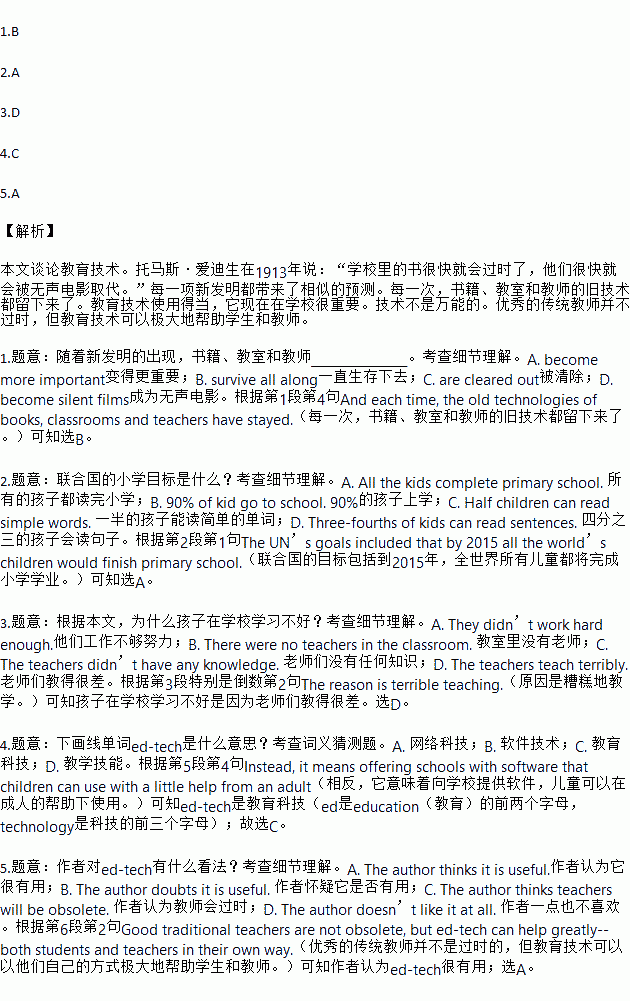题目内容
“Books will soon be obsolete(废弃的,淘汰的) in schools,” Thomas Edison said in 1913: they would, he believed, soon be replaced by silent films. Each new invention has brought the similar predictions. And each time, the old technologies of books, classrooms and teachers have stayed.
Like teachers, educational technology comes in many forms, from wonderful to terrible. But, used properly, it now is important in schools, especially in pour areas.
The UN’s goals included that by 2015 all the world’s children would finish primary school. The goal has been achieved: nine out of ten children are now at school. However, the figure is not as brilliant as it sounds. Even most of the children go to school, a lot of them learn pretty much nothing there. A recent World Bank study shows, half of nine-year-old children in an African country can not read a simple word and a three-fourths can not read a simple sentence. The reason is terrible teaching. Only 7% of the teachers had the necessary knowledge and half the time the teacher was not in the classroom.
Paying teachers more, in hope of better ones, is not the answer. Many methods are tried and things don’t change much.
Several studies suggest ed-tech can help. It seems to have an effect. But it does not mean putting computers on schools in the hope that children will understand how to use them. If they do so, plenty of money is wasted. Instead, it means offering schools with software that children can use with a little help from an adult. In this way, we can get things right more often and many things can be in control.
Technology can not be everything. Good traditional teachers are not obsolete, but ed-tech can help greatly--both students and teachers in their own way.
1.With the new inventions, books, classrooms and teachers ________
A. become more important B. survive all along
C. are cleared out D. become silent films
2.What was UN’s goal for primary schools?
A. All the kids complete primary school. B. 90% of kid go to school.
C. Half children can read simple words. D. Three-fourths of kids can read sentences.
3.Why did kids learn poorly at school according to the passage?
A. They didn’t work hard enough. B. There were no teachers in the classroom.
C. The teachers didn’t have any knowledge. D. The teachers teach terribly.
4.What does the underline word ed-tech mean?
A. 网络科技 B. 软件技术 C. 教育科技 D. 教学技能
5.What does the author think of ed-tech?
A. The author thinks it is useful. B. The author doubts it is useful.
C. The author thinks teachers will be obsolete. D. The author doesn’t like it at all.
 快乐5加2金卷系列答案
快乐5加2金卷系列答案
